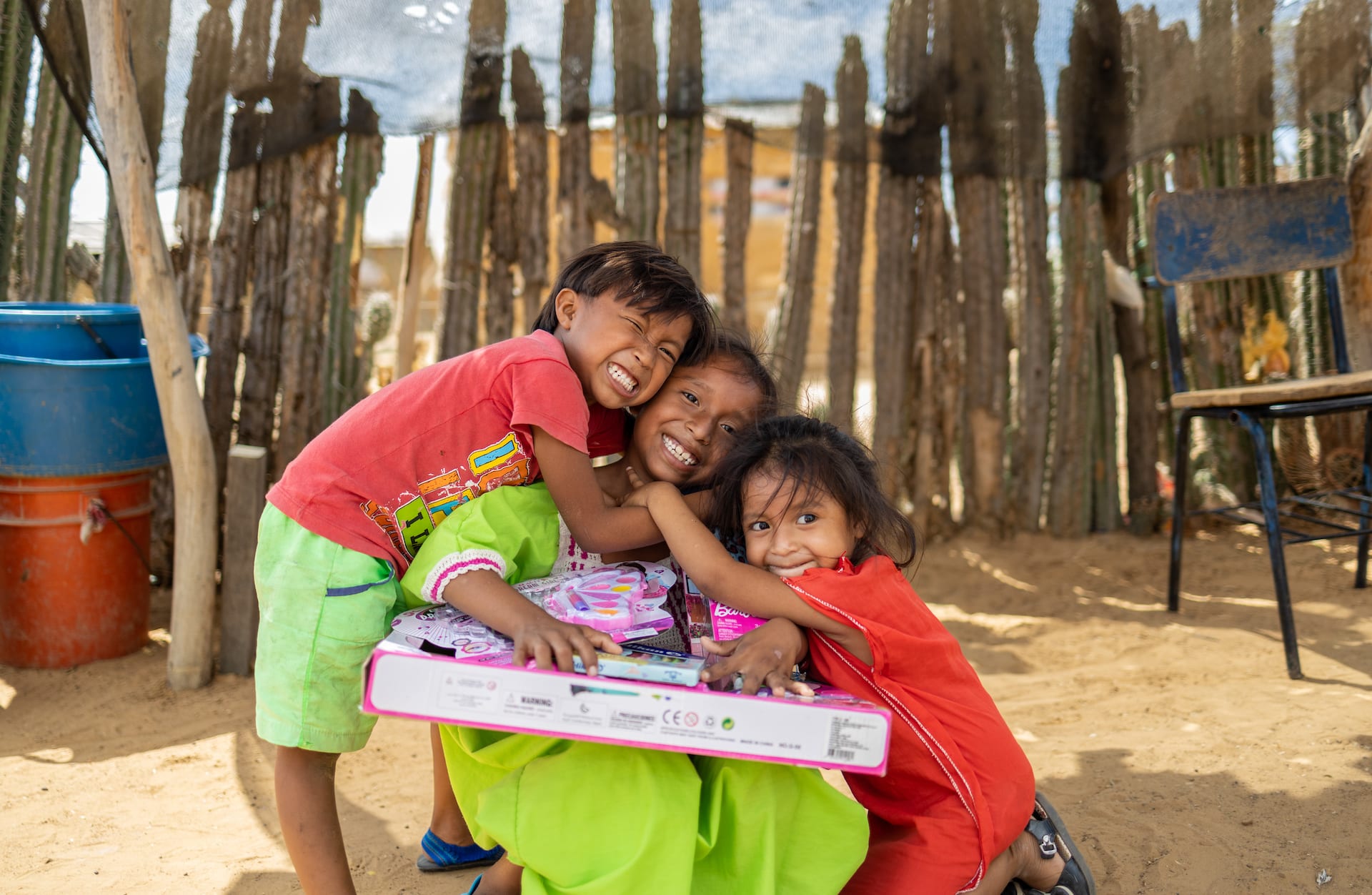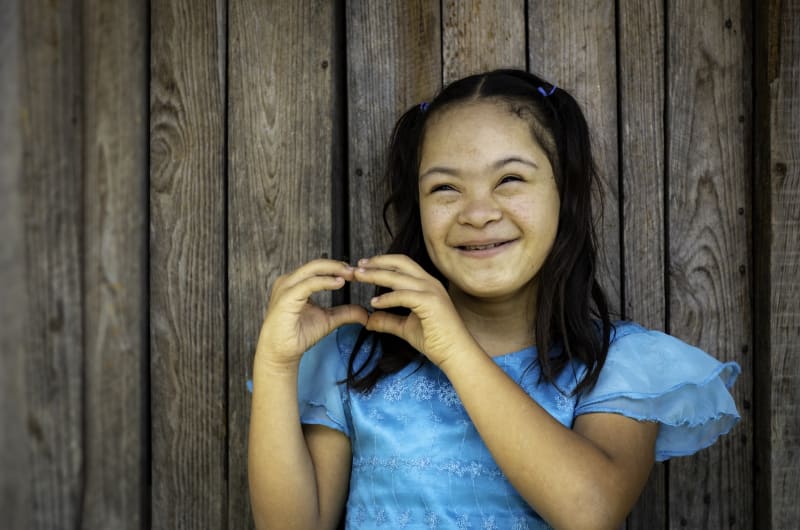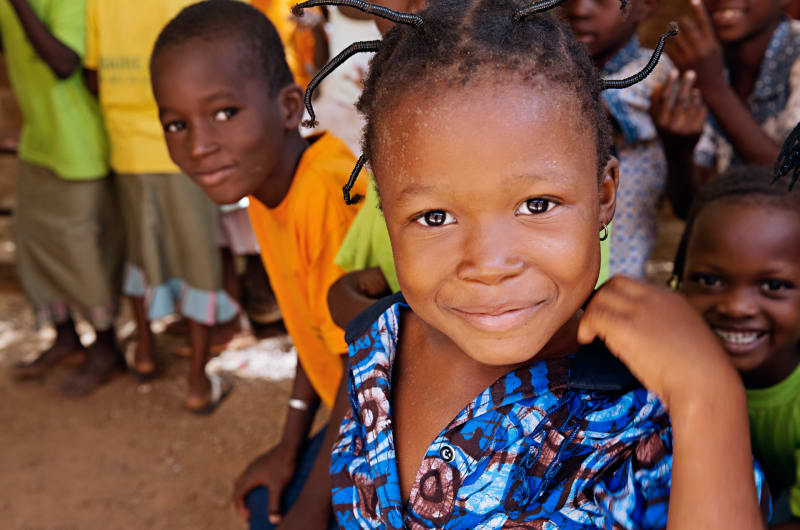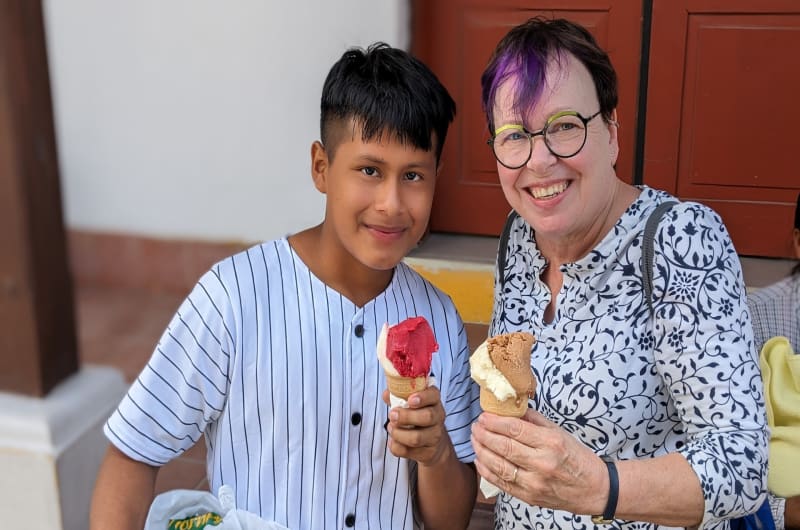When you sit down to send a gift to the Compassion child you sponsor, think about the best gift you’ve ever received. Most of us would agree that the best gifts are personal, generous and impactful.
That’s our goal for the gifts sponsors send to sponsored children, their families or Compassion centres. It’s why we’re intentional about giving sponsors the opportunity to send gifts to sponsored children.
Frequently asked questions about gifts
Giving the perfect gift doesn’t have to be complicated. Here’s your complete guide to giving gifts as a Compassion sponsor!
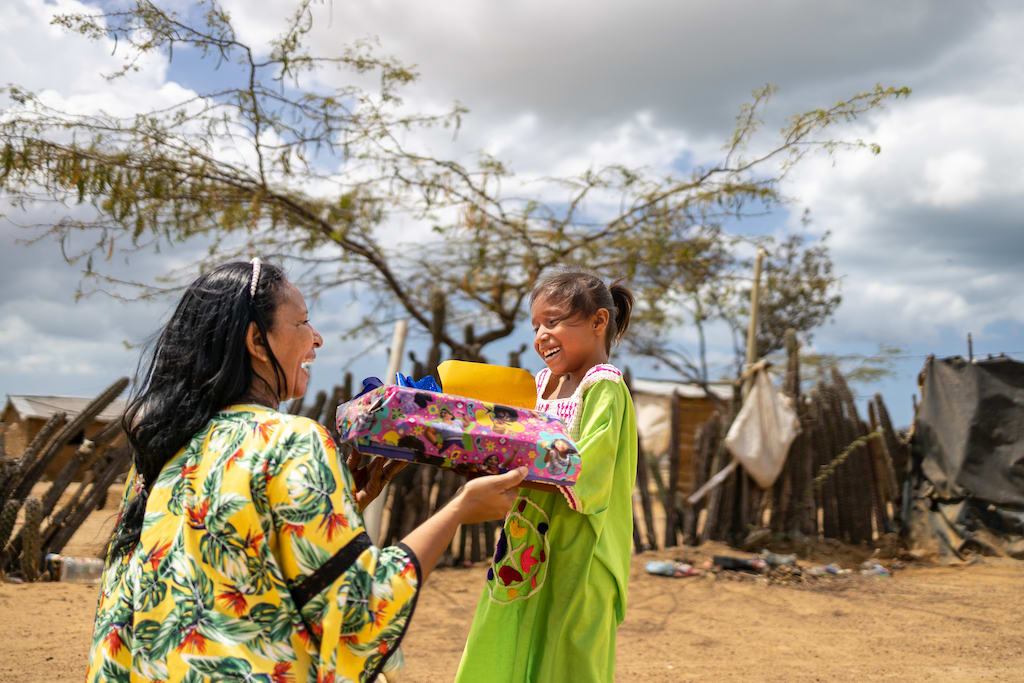
Thanks to her sponsor, eight-year-old Eldimar in Colombia receives her first-ever birthday gift, delivered by Pastor Enis from the Compassion centre.
How do gifts work?
Sponsors can send various types of monetary gifts to the child they sponsor, their family or their Compassion centre. When you give a gift, Compassion sends those funds to the Compassion centre where the child you sponsor is registered.
A Compassion centre staff member will use the funds to purchase items locally to meet specific needs identified by the centre, family and/or child, ensuring that your generous gift is personal and impactful.
What are the different kinds of gifts I can send?
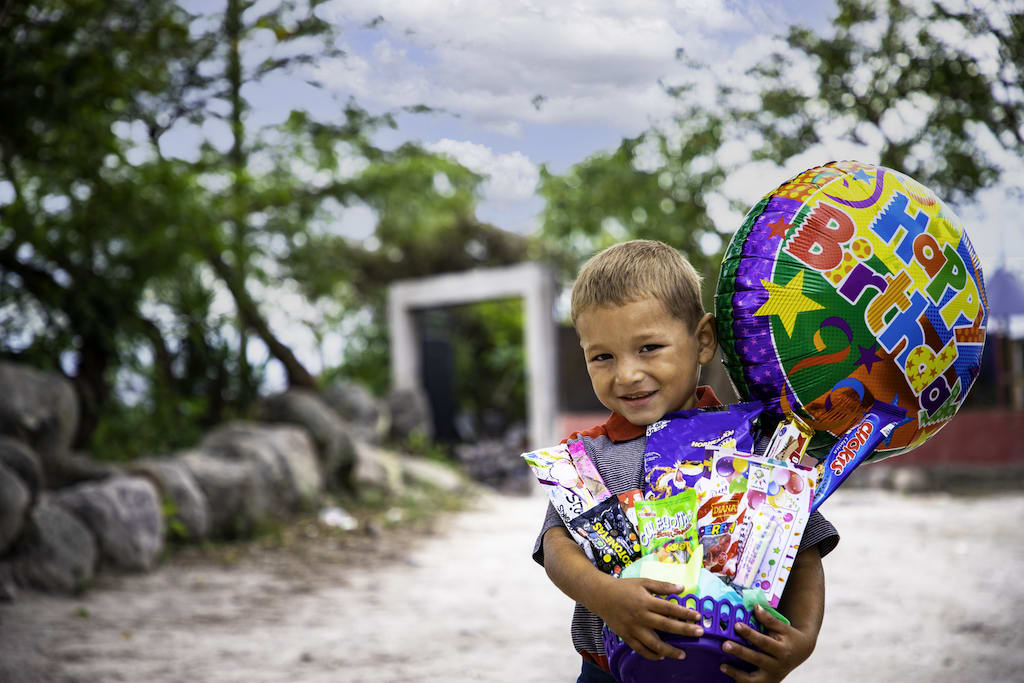
In Honduras, four-year-old Mateo poses with a bright birthday basket.
Birthday Gift: Give the child you sponsor a special age-appropriate birthday gift chosen by their family and centre staff. A gift of $15-$150 CAD can be given once per year.
Child Gift: Give the child you sponsor a gift “just because”, used to meet specific needs identified by their family and centre staff. A gift of $15-$150 CAD can be given once per year.
Child Development Centre Gift: Give a gift to the Compassion centre where the child you sponsor attends, used to provide a greater experience for all the children the centre serves. A gift of $150-$10,000 CAD can be given up to two times a year (gift limit is cumulative).
Family Gift: Give a gift to the family of the child you sponsor, used to meet the specific needs of the whole family, including their siblings. A gift of $40-$1,200 CAD can be given up to two times per year (gift limit is cumulative).
Final Graduation Gift: Give a one-time graduation gift to the child you sponsor to show them how proud you are of them and their accomplishments. A gift of $50-$2,500 can be given at the time the child you sponsor exits the program.
Christmas Gift Fund: Give a gift to ensure the child you sponsor and every child in Compassion’s program receives a gift this Christmas. We recommend a gift of $25 per sponsored child. Learn more about the Christmas Gift Fund here.
What kinds of things are purchased as gifts?
There’s a wide range of meaningful things that are purchased as gifts. This personalized approach that meets specific needs is one of the things that make your gifts so impactful.
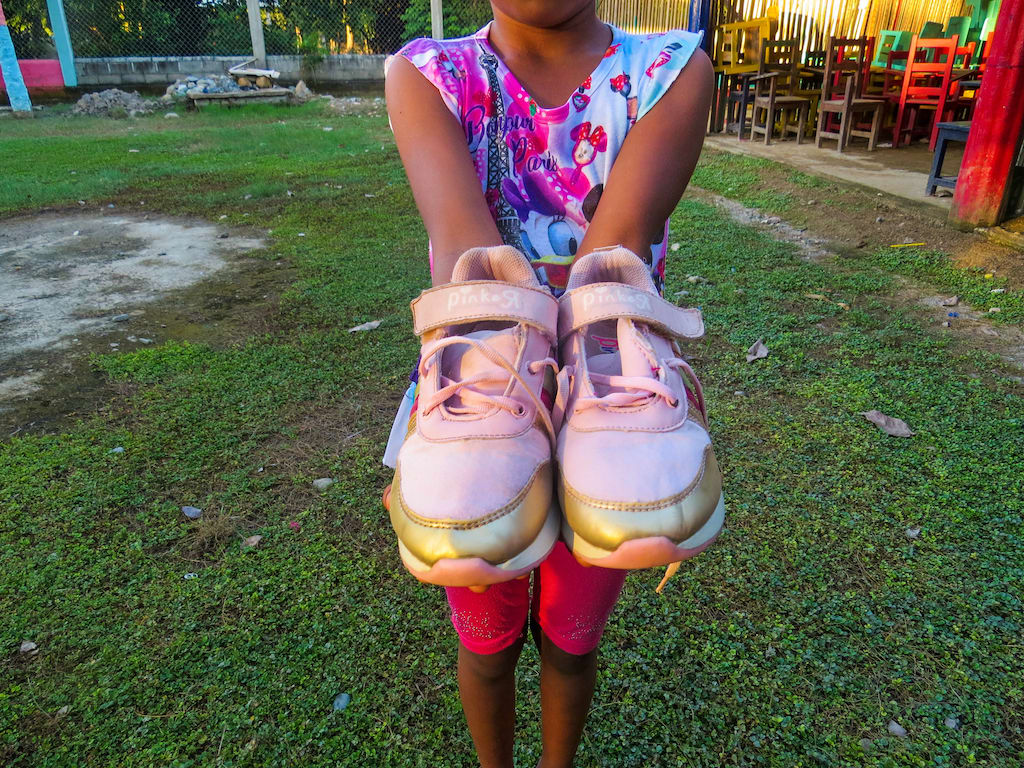
In Mexico, seven-year-old Iris used a gift from her sponsor to purchase a new pair of shoes.
Examples include shoes or clothing, groceries, a special toy, livestock or a bicycle. Some children or families may choose to save the funds toward a larger purchase they are working towards, such as a new home or appliance. Some families or teens use gifts as capital to start a small business.
Compassion centre gifts are also used for a wide variety of things, such as new learning materials, office supplies, special programs or classroom improvements.
How much should I send?
Each type of gift includes a dollar amount range that sponsors can send. We recommend anything within those ranges, which are intentionally large to cover the many different reasons why you are sending a gift. It’s part of what makes this an intentional and personalized experience.
For the Christmas Gift Fund, we recommend a gift of $25 per sponsored child.
Why can’t I send a package?
Sending packages internationally would be very costly for Compassion, in many cases prohibitively so. Additionally, in many of the communities where Compassion centres are located, postal service is neither reliable nor secure.
Beyond that, enabling Compassion centres to purchase gifts locally is empowering, good for local economies and ensures that your gift is as personalized and impactful as possible.
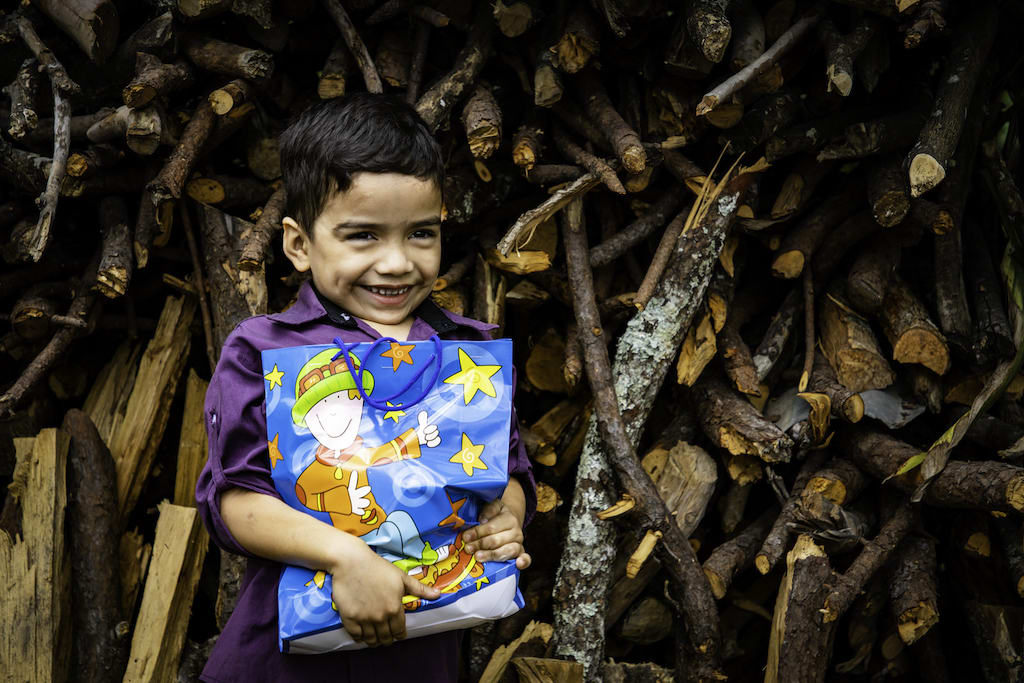
In Honduras, seven-year-old Estiven poses with a birthday gift from his sponsor.
In short, monetary gifts are the most reliable, secure, personalized and impactful way to send a gift to the child you sponsor.
Why are there limits on gifts?
There is a maximum limit on the dollar amount and the number of gifts sponsors can send in a year. (One exception is the Christmas Gift Fund. We invite you to be as generous as you’d like to help ensure every child in Compassion’s program receives a Christmas gift, regardless if they are sponsored or if their sponsor gives.)
Gift limits ensure one child at a Compassion centre does not receive an excessive amount more in gifts than their peers, which could have unintended social consequences.
It also protects both sponsors and program participants from risks of dependency or being taken advantage of (both by those within and beyond Compassion’s program). In addition to other protective measures like Compassion centre oversight and financial audits, gift limits ensure that the impact of gifts stays positive and doesn’t have unintended negative consequences.
We’re so thankful for your generosity and desire to bless the child you sponsor abundantly. We encourage you to continue giving regularly and strategically!
Can I send a gift for a specific purpose?
There are times when you may learn about a specific need of the child you sponsor, their family or their Compassion centre from a letter or visit. Other times, you may learn from our office that the child you sponsor was specifically impacted by an environmental disaster or other crisis and want to send a gift to help support their recovery.
While you should not feel any pressure, we are always thankful when sponsors desire to meet a specific need through a child, family or centre gift.
Feel free to include special instructions about directing your gift to a specific need in a note alongside your gift. You can also contact our Supporter Services team if you’d like us to seek more information about the specific need (such as the specific amount needed) or leave special instructions for your gift.
How do I give?
Giving is easy:
- Online: You can give a gift online through My Compassion. If you don’t yet have an account, signing up is easy! All you need is your email address and unique supporter number. (Hint: it’s the one that starts with “8-” on many of our communications to you!)
- Phone: You can call us to give a gift over the phone. Our team is available Monday to Friday, 8:00 a.m. to 7:00 p.m. Eastern Time.
- Mail: If you let us know you prefer direct mail communications, we will mail you a form that you can use to give Christmas, birthday and graduation gifts.
You can also choose to set up recurring gifts to ensure you don’t miss the opportunity to let the child you sponsor know that you are thinking of them.
You should send gifts at least two months in advance of when you want your gift to arrive. (Don’t worry, we’ll remind you when it’s time to give a Christmas or birthday gift.)
The impact of gifts
The gifts Compassion sponsors send to the children they sponsor aren’t your everyday, ordinary gifts. Often, their impact is life-changing.
A home transformed
In Uganda, a gift from her sponsor enabled 15-year-old Racheal and her family to build a new home. It stands in stark contrast to their old house. “It was too small with little room for all of us,” Racheal says. Beyond that, a leak in the roof made life next to impossible when it rained, and the small windows meant that much of life was lived in dimly lit conditions.
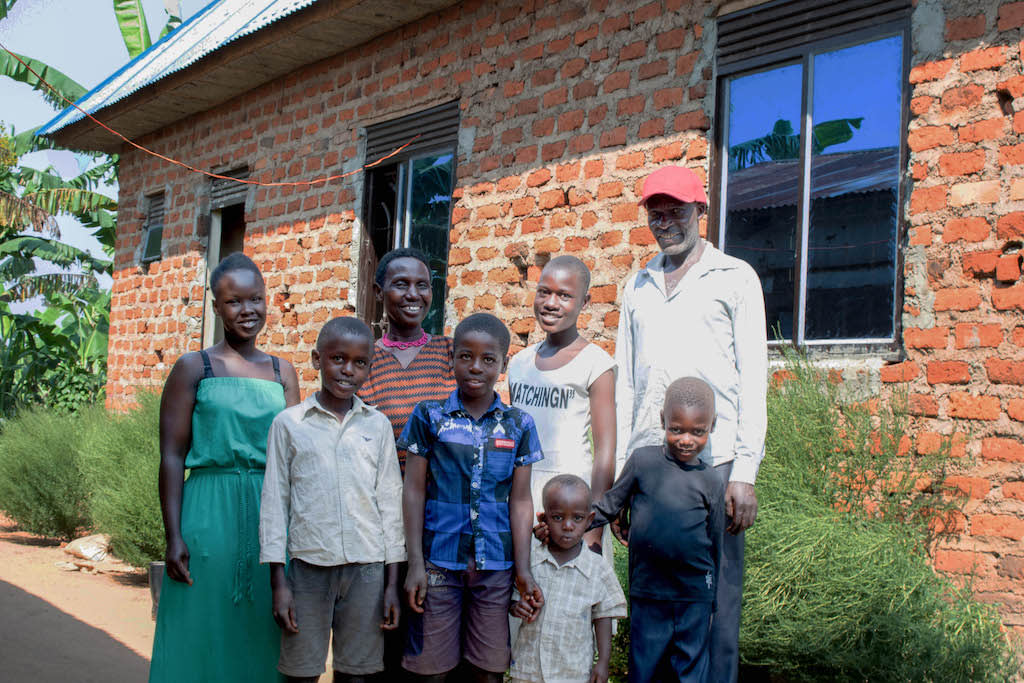
Racheal and her family in front of their new home.
“The day we entered our new home, I jumped for joy! I was going to sleep in a new home that was bigger and with a better roof. This new house is spacious and comfortable. I am thrilled,” says Racheal.
Life-changing livestock
In Burkina Faso, nine-year-old Awa’s ethnic community is well-known for cattle herding, but her parents had no cattle because of generational poverty. Thanks to generous gifts from Awa’s sponsors, Awa’s family became livestock owners for the first time.
“When the gifts arrived, I purchased a cow, then a second cow and a donkey. I am thrilled that my family now has four cows and a donkey,” says Oumarou, Awa’s father.
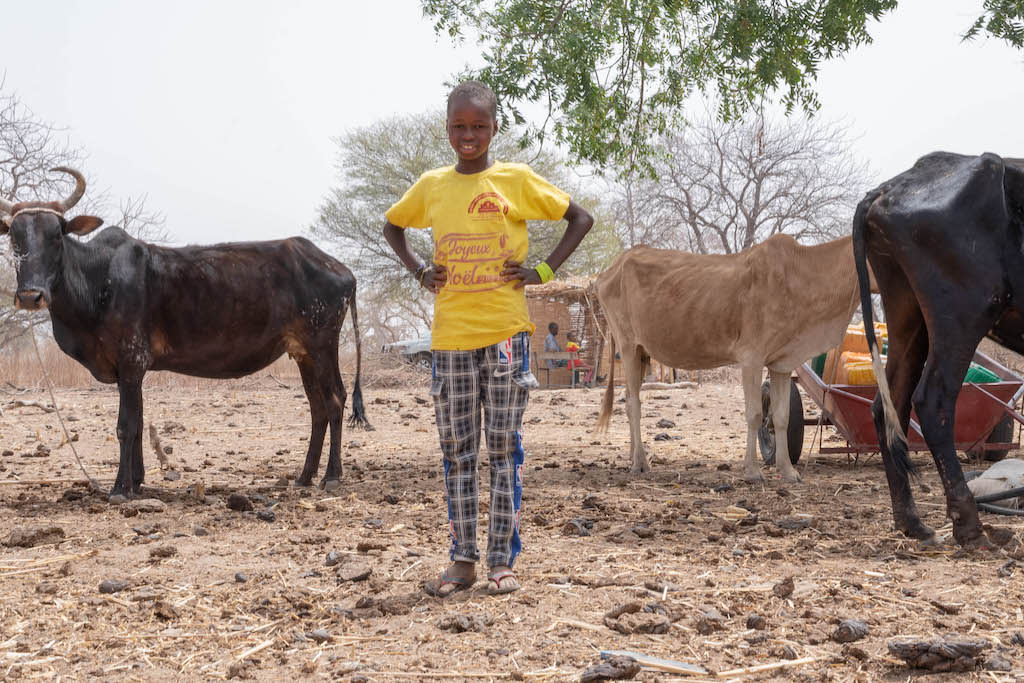
Awa poses with her family’s livestock.
“Owning cows means plowing and growing crops become easier and faster than working with bare hands. Cows also provide milk for our family and a milk business in the village. There is no waste because cows’ waste also fertilizes the land and increases my crops,” Oumarou says. “Before having cows, I was limited and hopeless, but now, I feel honoured and respected in the village.”
A gift from Awa’s sponsors brought esteem to the family, as well as invaluable food security and resilience in the midst of the global food crisis.
Kickstarting a small business
When 18-year-old Julio in Indonesia saw an old sewing machine at a friend’s house, he was captivated by the idea of becoming a tailor. So, when his Compassion centre began a sewing skills class, he was quick to sign up.
“I love sewing, but I never dreamed I really could become a tailor. However, when I became part of the Compassion program, the mentors and tutors succeeded in encouraging and motivating me to find and hone my skills according to what I enjoy,” says Julio.
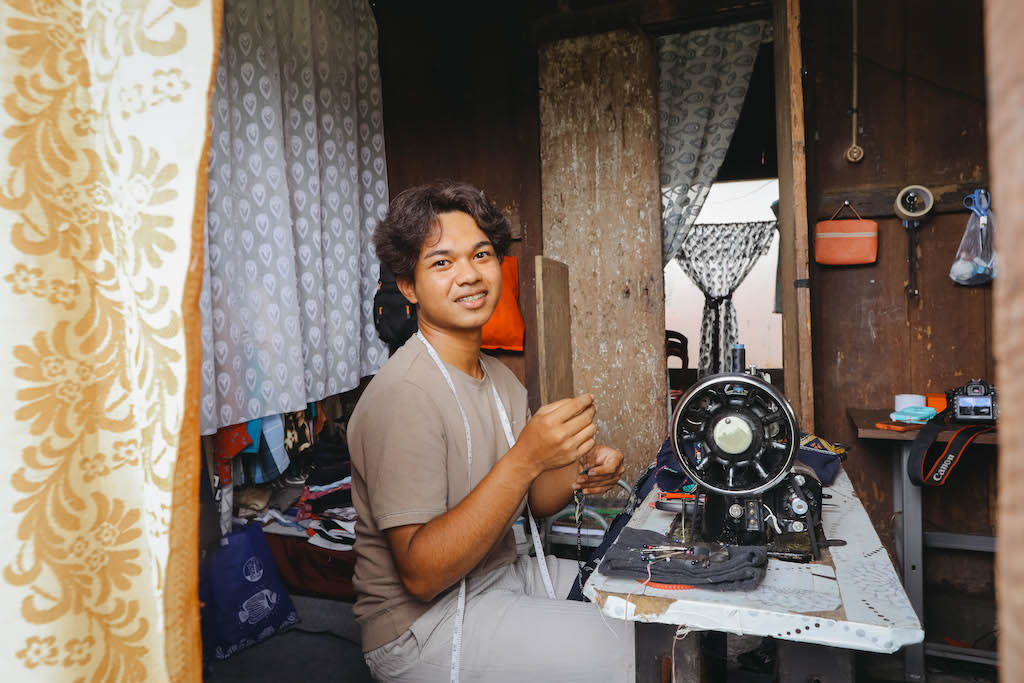
Julio works at his sewing machine, a gift from his sponsor.
Then, it was a gift from Julio’s sponsor that pushed him to the next level, enabling him to purchase his first sewing machine and start a small tailoring business. In less than a year, Julio made enough to expand his business with additional equipment and began making a modest profit that he is using to support himself through university.
A gift from his sponsor gave Julio the tools to take bold steps toward a bright future free from poverty.
Everyone loves receiving a personal, generous and impactful gift, but for children living in poverty, gifts make all the more of an impact.
Consider sending a gift today or setting up a recurring donation to ensure you don’t miss these valuable opportunities to make an even bigger impact for the child you sponsor, their family or community.
Give a gift to the child you sponsor today!
Photos and field reporting by Prever Mukasa (Uganda), Jehojakim (Burkina Faso) and Vera Aurima (Indonesia)

